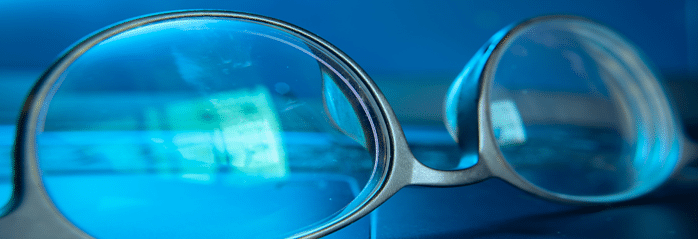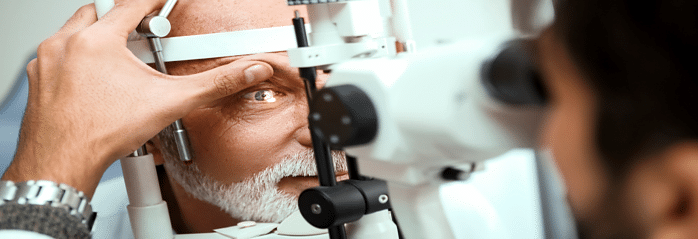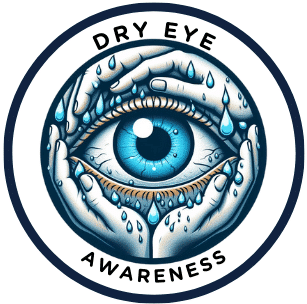
Have you ever experienced that uncomfortable, scratchy feeling in your eyes after a long day of staring at screens? It’s not just your imagination. This is a common indicator of Dry Eye Syndrome (DES), a condition where your eyes don’t lubricate themselves enough due to insufficient tear production or poor tear quality.
In our modern era, screens are practically unavoidable. From smartphones to laptops, our eyes are constantly hopping from one digital device to another. This increased exposure has led to a increase in the number of people experiencing symptoms of DES. But what exactly does screen time do to our eyes?
Several factors converge to make DES a widespread concern. Beyond just staring at screens for extended periods, other contributors include inadequate blinking, certain medications, environmental conditions, and even the aging process. However, the spotlight has intensified on the link between screen time and the rising occurrence of DES, prompting more in-depth research by eye care professionals.

While our digital lifestyles are seemingly indispensable, they might be putting our eye health on the line. This has ramped up efforts to understand and counteract the adverse effects of screen time on our eyes. The symptoms of DES – things like redness, irritation, fatigue, and even blurred vision – are more than just annoyances; they signal a need to reevaluate our screen habits.
The Impact of Prolonged Screen Time on Eye Health
Let’s zero in on how exactly your eyes suffer when you stare at a screen for too long. It’s not just about eye strain; it’s also about the more significant issues that can arise over time. Screens often lead to reduced blinking, which, believe it or not, is vital for eye health. Each blink spreads tears over the surface of your eye, keeping it moist and protected from irritants.
Extensive research links hefty amounts of screen time with a higher risk of developing dry eye syndrome (DES). It’s a relationship that can’t be ignored, especially in this digital era where screens are virtually unavoidable. The connection is clear: the longer the screen time, the higher the chance of having dry, irritated, or tired eyes.

You’ll find that DES isn’t selective; it affects people from all walks of life. You’re going to find out about people who, just like you, are tethered to their screens for work, leisure, or both, and have experienced DES symptoms firsthand. Their experiences underline the reality of this syndrome in modern life.
Now, on to those who know best. Eye health organizations worldwide are sounding the alarm about the link between DES and excessive screen use. Their advice is straightforward: Managing your screen time isn’t just good for your productivity; it’s crucial for your eye health. In the following section, you’ll get some actionable tips on how to do just that.
Preventative Strategies and Adaptive Techniques for Dry Eye Syndrome
Now that you know screen time can put you at risk for Dry Eye Syndrome, let’s talk about how you can fight back. You don’t need to throw out all your devices to protect your eyes. In fact, there are several effective strategies you can adopt to minimize the impact. You’re going to find out about everything from simple habit changes to using the latest tech to keep your eyes healthy.
I’m here to help you with some tips that eye care professionals often recommend. For starters, follow the 20-20-20 rule: after every 20 minutes, look at something 20 feet away for 20-seconds. This little trick helps reset your eyes and prevent strain. And don’t forget to blink! It might sound silly, but we tend to blink less when staring at screens, so making a conscious effort to blink can be a game changer.
Adaptive tools and workspace adjustments can also be a huge help. Position your screen so there’s no glare, and use a document holder when you’re multitasking with papers and screens. Choose something that resonates with you—a pair of computer glasses designed to filter blue light, or a humidifier to add moisture to the air can make a noticeable difference.

Lastly, don’t overlook the basics of good health. Get enough sleep, stay hydrated, and maintain a balanced diet, including omega-3 fatty acids, to help maintain eye moisture and overall well-being. Dietary supplements might also play a role, but it’s best to consult with a healthcare professional before adding any new regime.
Now, I can tell you about lifestyle choices and hacks all day, but sometimes these aren’t enough. So, what happens when preventative measures fall short? Stay tuned for the next section, where I’ll discuss when it’s time to seek professional help and the long-term strategies for managing dry eyes in a screen-saturated world.
Seeking Professional Assistance and Long-term Management
I’m here to help you understand when it’s time to step away from the home remedies and reach out to a professional. If you notice persistent discomfort, visual disturbances, or if the simple preventative strategies just aren’t cutting it, it’s time to consult an eye care specialist. They can offer a personalized approach and, if needed, prescribe medication or suggest in-office procedures.

Don’t worry too much about the technology side of things overshadowing personalized care. Being proactive about eye exams is crucial, especially if you’re someone who spends significant time in front of screens. Regular check-ups will not only monitor the health of your eyes but can also catch early signs of DES or other eye conditions.
There are a variety of therapies for DES, depending on its severity and cause. They range from over-the-counter artificial tears to prescription drugs that help your body produce more natural tears. For some, punctal plugs that help retain moisture on the eye’s surface might be the answer, or perhaps special contact lenses designed for DES sufferers.
I’m optimistic about the advances in technology and eye care. From cutting-edge screen filters to smart glasses that track your blink rate, the future is focusing on solutions. Combine these innovations with a commitment to adjusting your screen habits, and you’ve got a powerful defense against Dry Eye Syndrome.
Remember, it’s never too early or too late to take charge of your eye health. By blending science, self-care, and professional wisdom, you can alleviate the symptoms of DES and safeguard your vision for years to come. I really hope that you find these tips useful, and I’d love to hear about your journey in managing screen time and keeping your eyes healthy!
